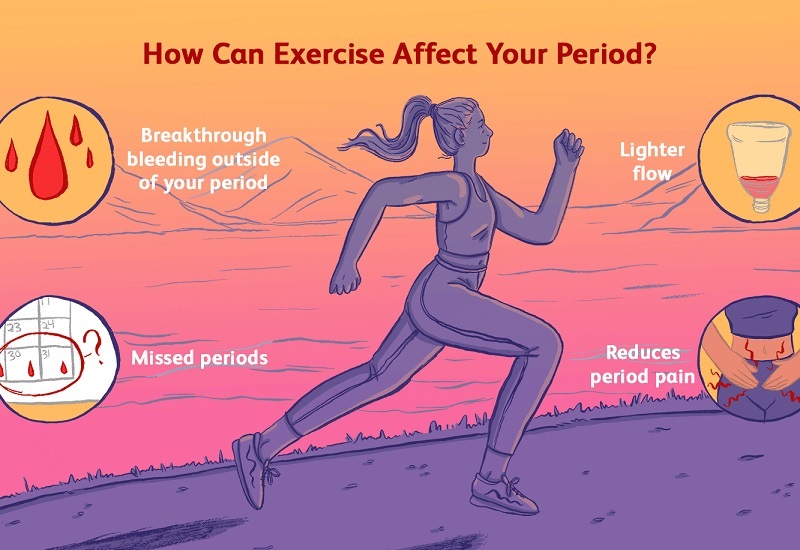
Two new investigations warn about the risks of exercising too much. When it comes to owning too much of a something good, Exercise is one of the great Examples.
Two recent examinations have revealed insight into the effect of over-exercising, empowering seasoned athletes and casual devotees alike to relax. The initial, from the University of Utah in Salt Lake City, has recognized the biochemical responses that cause fatigue and muscle pain when you work out.
Furthermore, the second, Loyola University Medical Center in Maywood, Ill., shows that wealthier, young athletes who play specific sports can encounter more overuse wounds than their lower-pay peers.
Whereas the mantra of “no pain, no gain” is an inspiration for some, it tends to be risky when taken to the extreme.
Overexercising Symptoms
If you are unnecessarily working out, you could first see the negative impacts. Over-exercising has implications for the heart and incorporates an expanded resting pulse. You could likewise encounter unexplained weight loss and diminished craving.
Overtraining can cause fatigue, continuous muscle and joint pain irrelevant to a particular physical issue, trouble sleeping or not feeling rested when awake. You could always end up becoming sick more regularly.
So, executing exercises in your daily schedule can give you many advantages. Some of these include superior heart health, lower odds of depression, and surprisingly better bone health. However, over-exercising can affect your body.
Consequences of Exercising Too Much

Diminished Performance
If you notice a fall in your performance while working out, mainly while doing aerobics activities like cycling, swimming and running, your body is being pushed excessively hard.
Expands the Risk of Injury
If you are a person who isn’t used to an intense workout, then don’t push your limit. By being too harsh on yourself, you will improve the probability of getting harmed. Muscle pain, joint strain, and back pain are common exercise injuries that might throw you off for several weeks.
Low Weight or Body Fat Percentage
Exercising can help you with keeping a healthy weight. Nonetheless, a few impacts of over-exercising can prompt an excessive amount of weight reduction. In general, women should have a BMI of over 18.5 and a muscle versus fat ratio of more than 20%. Whenever your weight drops excessively low, it can influence your hormones. Underweight ladies are at a higher risk of early menopause, osteoporosis, and infertility. You may also take a chance with frailty and a weakened immune system.
Insomnia
Whether you’re not resting soundly or struggling with falling asleep at all, sleeplessness can indicate too much Exercise. When you’re exercising sum that works for your body, it’s rest-promoting.
Depression or Anxiety
Exercise is a mood booster, however, but too much can leave you feeling sad or lethargic. Those battling the overexercising issue may likewise feel anxious and nervous at the prospect of missing an exercise, as indicated by ACE and HSS.
Expanded Cardiovascular Stress
With overtraining, even basic exercises become more effortful. In particular, baseline heart rate rises in the individuals who experience OTS, and it very well may be challenging for the pulse to get back to business as usual after exercising, with longer times of rest required.

Missing Periods
Whenever you train excessively hard, you might begin missing your periods. Known as amenorrhea, this is brought about by a plunge in estrogen levels that can likewise prompt osteoporosis.
Dark or Reddish Urine
If you notice colour changes in your pee after an exercise, it could flag a condition called rhabdomyolysis, where substances from damaged muscle tissue leak into the blood. This could also cause kidney issues.
You will Always Feel Tired
Overtraining doesn’t just reduce the performance; yet can likewise make you feel tired constantly. Whether you had a decent 7-8 hours of rest around the evening and had a healthy breakfast, you will feel empty. You want to understand your impediments and give adequate opportunity to your body between sessions to rest. An excessive amount of extreme exercise powers your body to deliver the stress hormone, which over time can make you feel depleted.
Changed Appetite
A decent exercise should instigate fervour for your next feast. However, if you’re overtraining, you probably won’t feel hungry. On the other hand, overtraining could make you hungry constantly.
Thus, we know extreme Exercise can unleash devastation on your body – mainly your heart, ligaments, tendons, and immune system. And for around 1 million individuals in the US, exercise addiction is unleashing havoc on their brains.
Side effects of exercise addiction include withdrawal – when you feel restless or depleted when you miss an exercise. Or on the other hand, they feel an absence of control and cannot cut down on Exercise. Even when you know, it’s hurting you.
Now, it’s essential to understand that you shouldn’t simply abandon working out. The key is to get the perfect amount.
